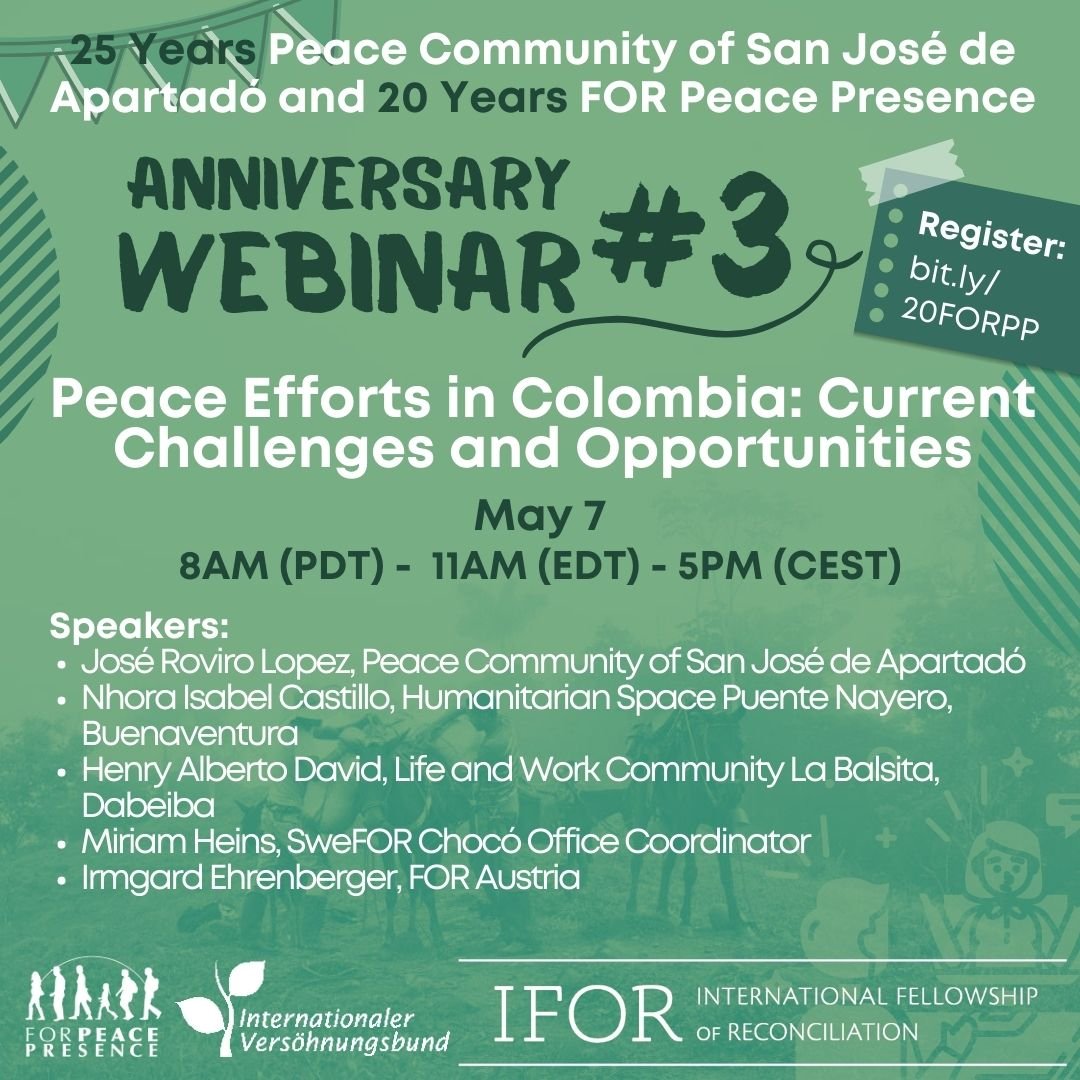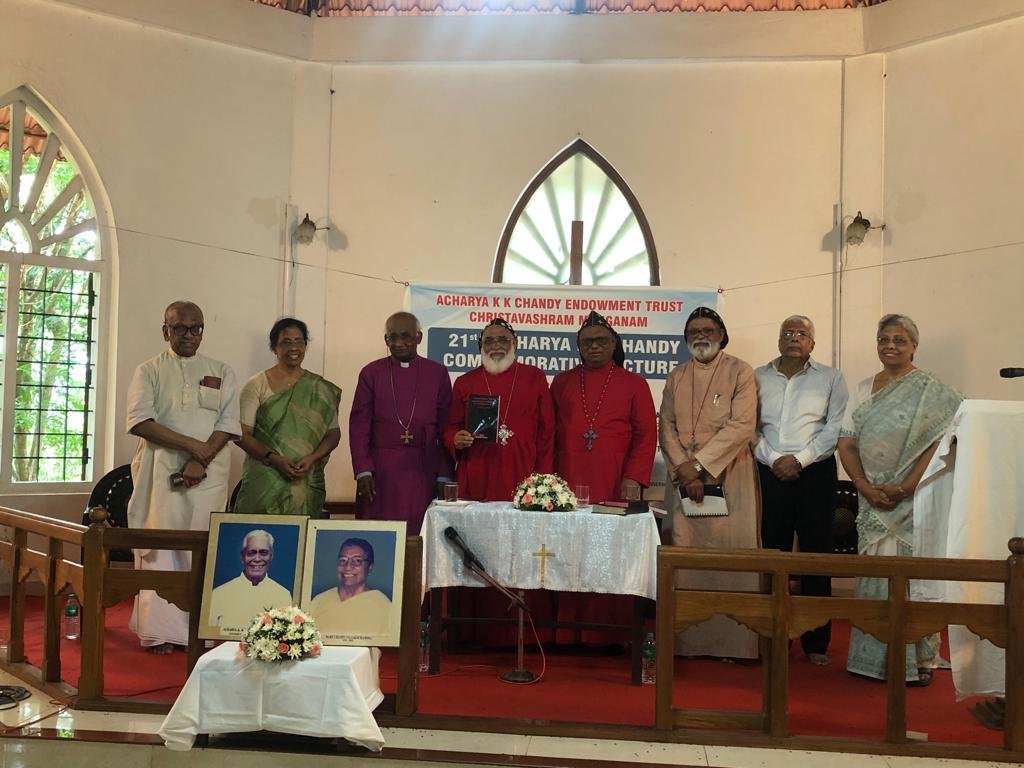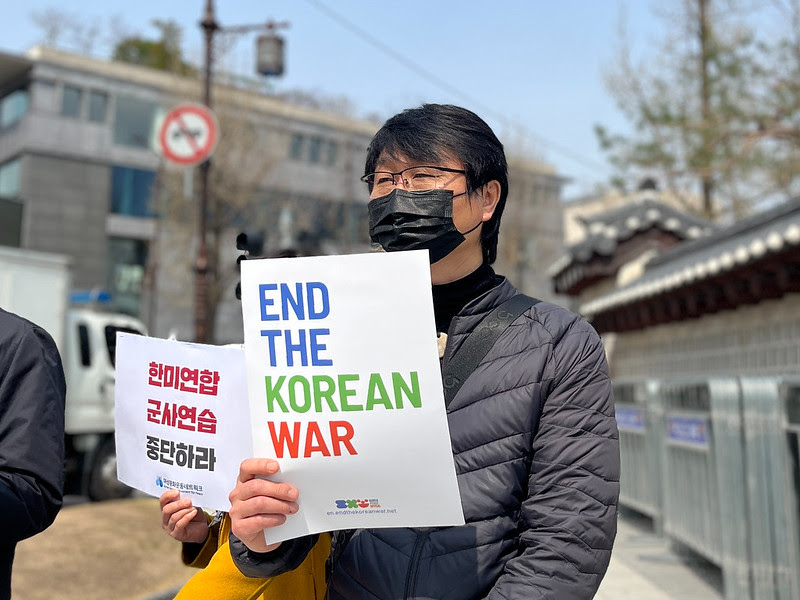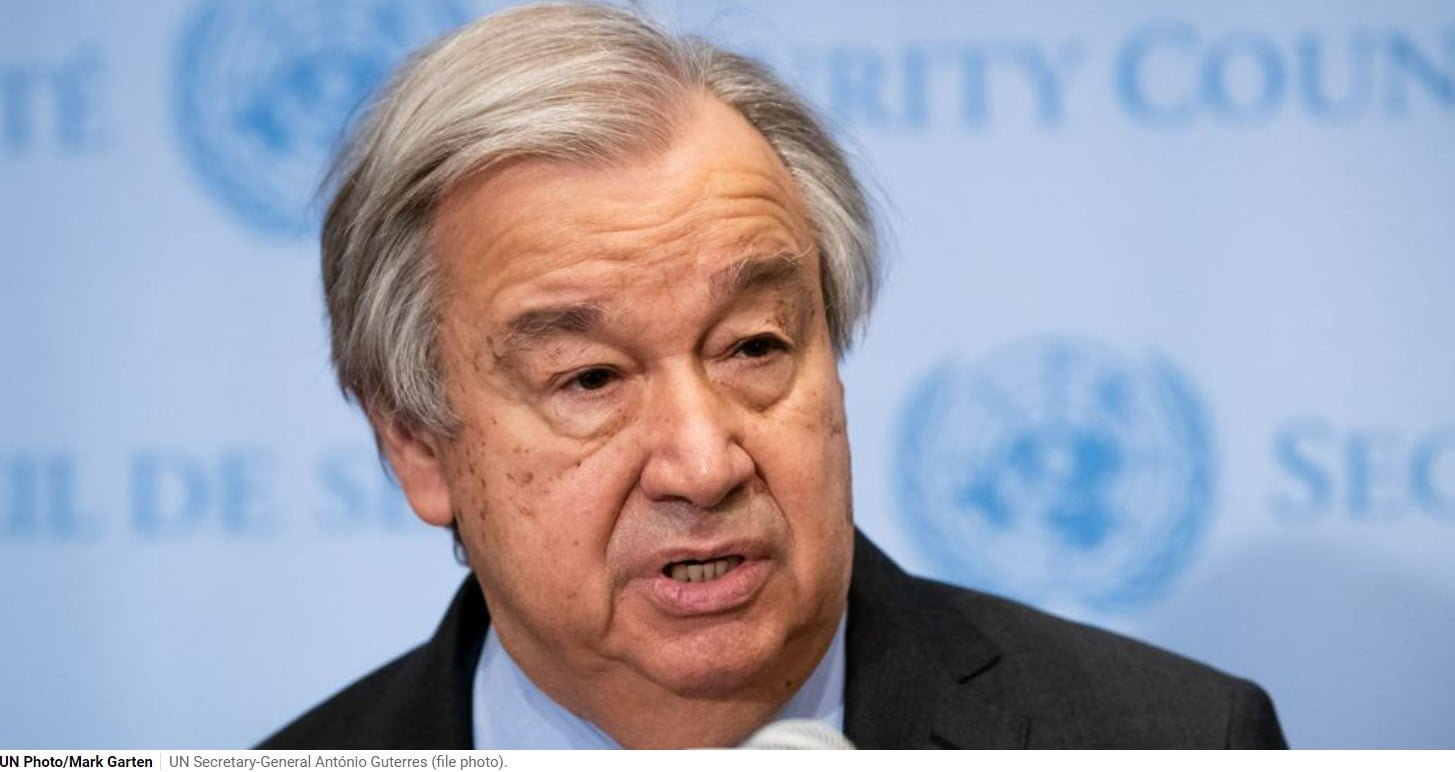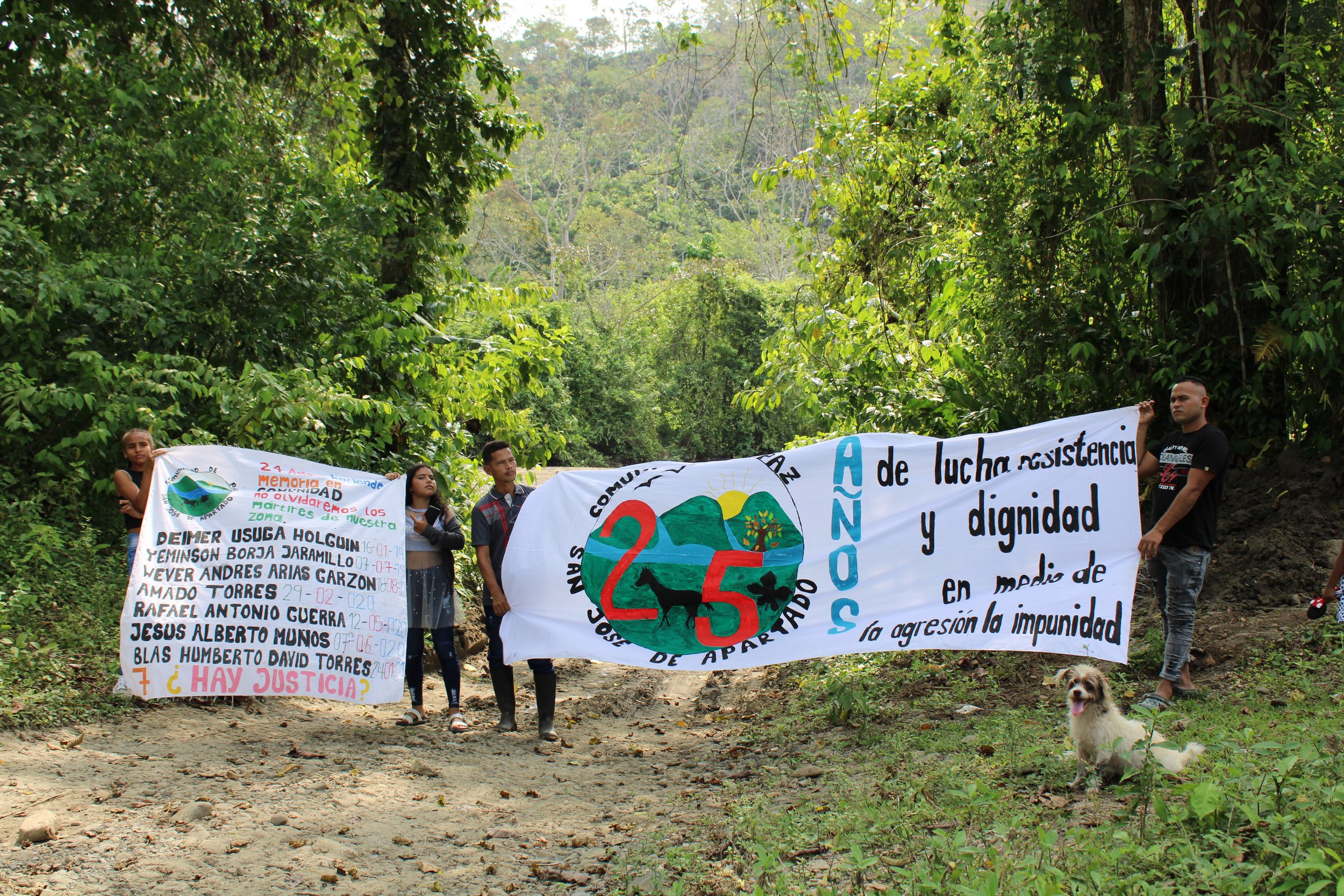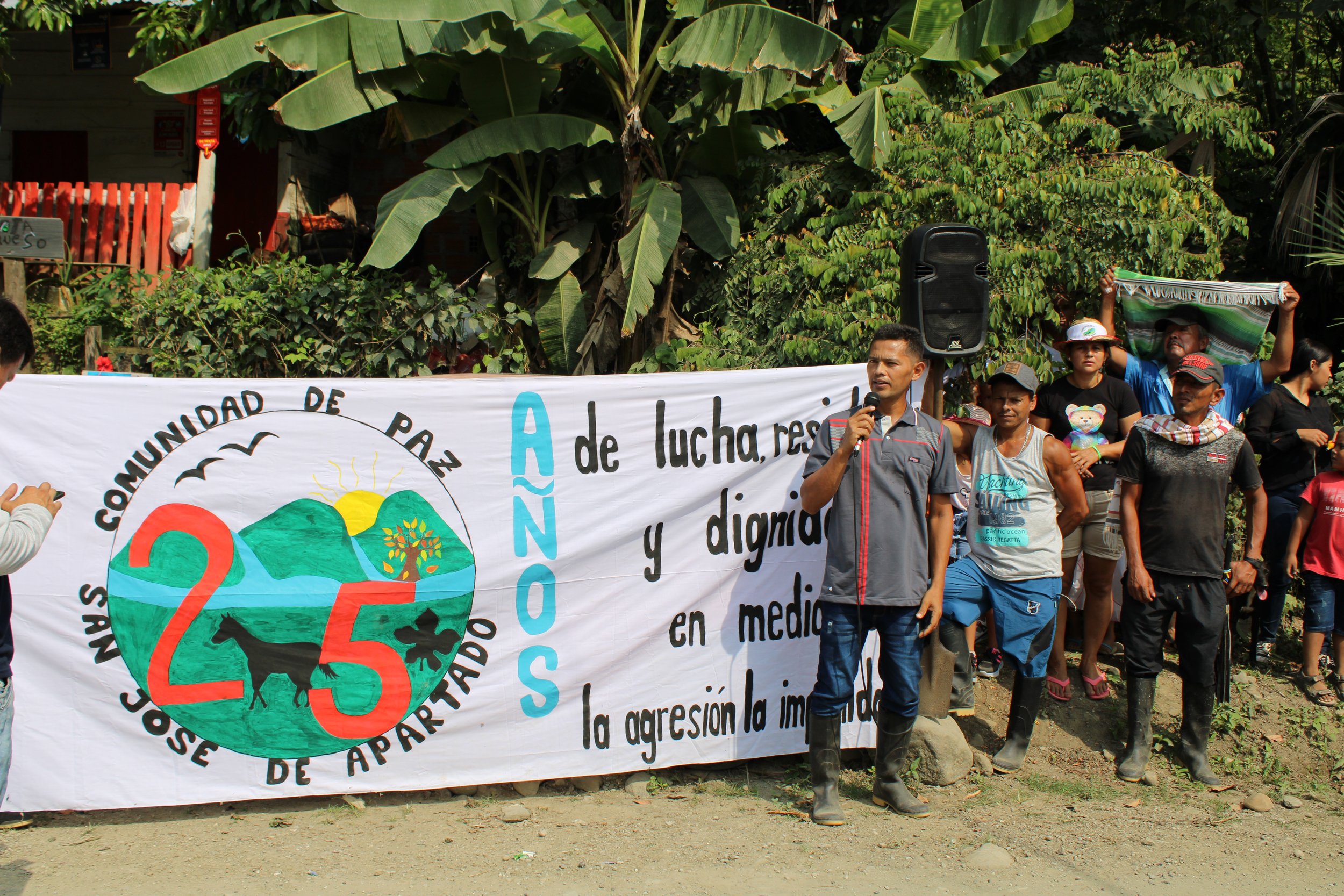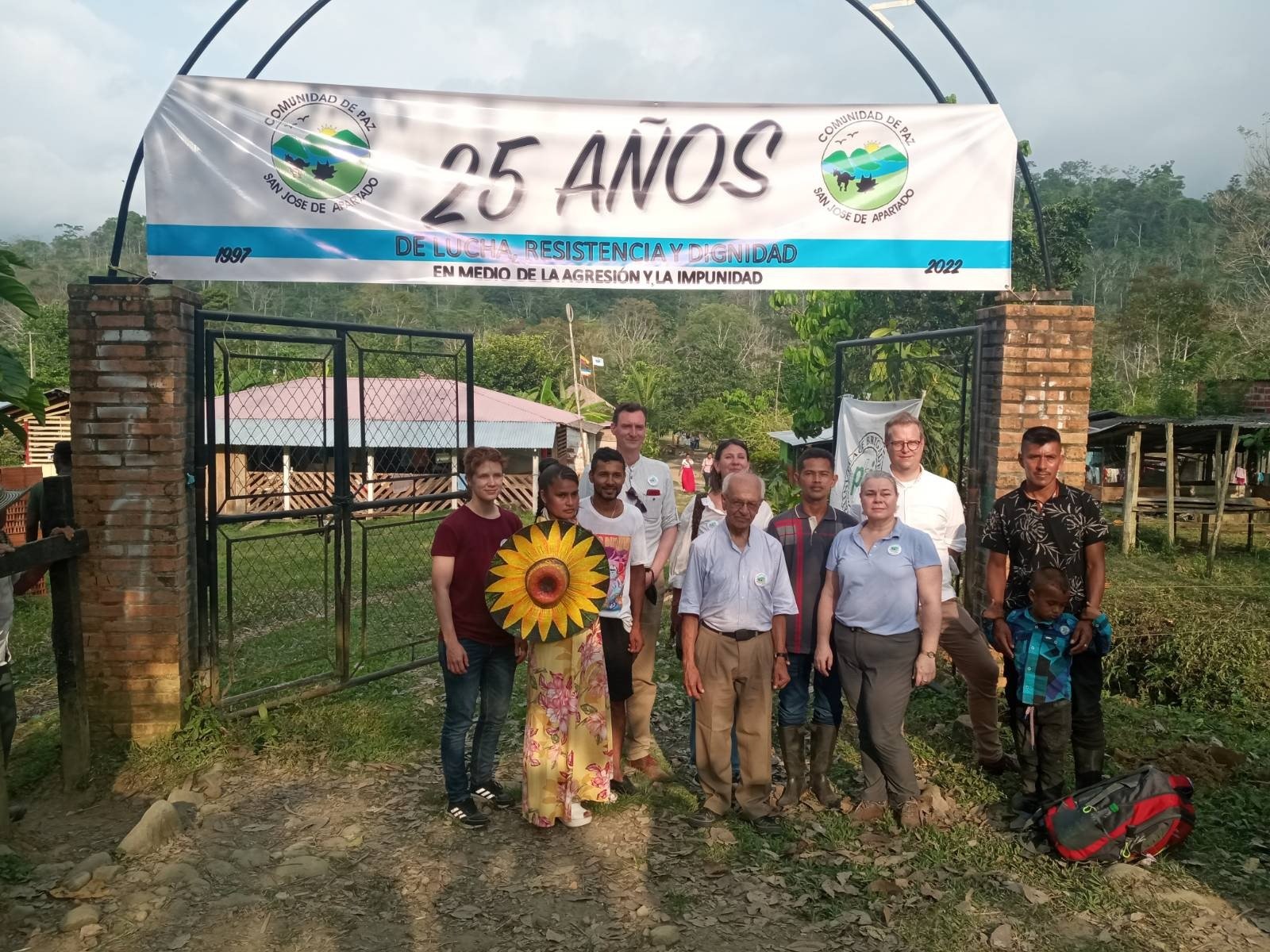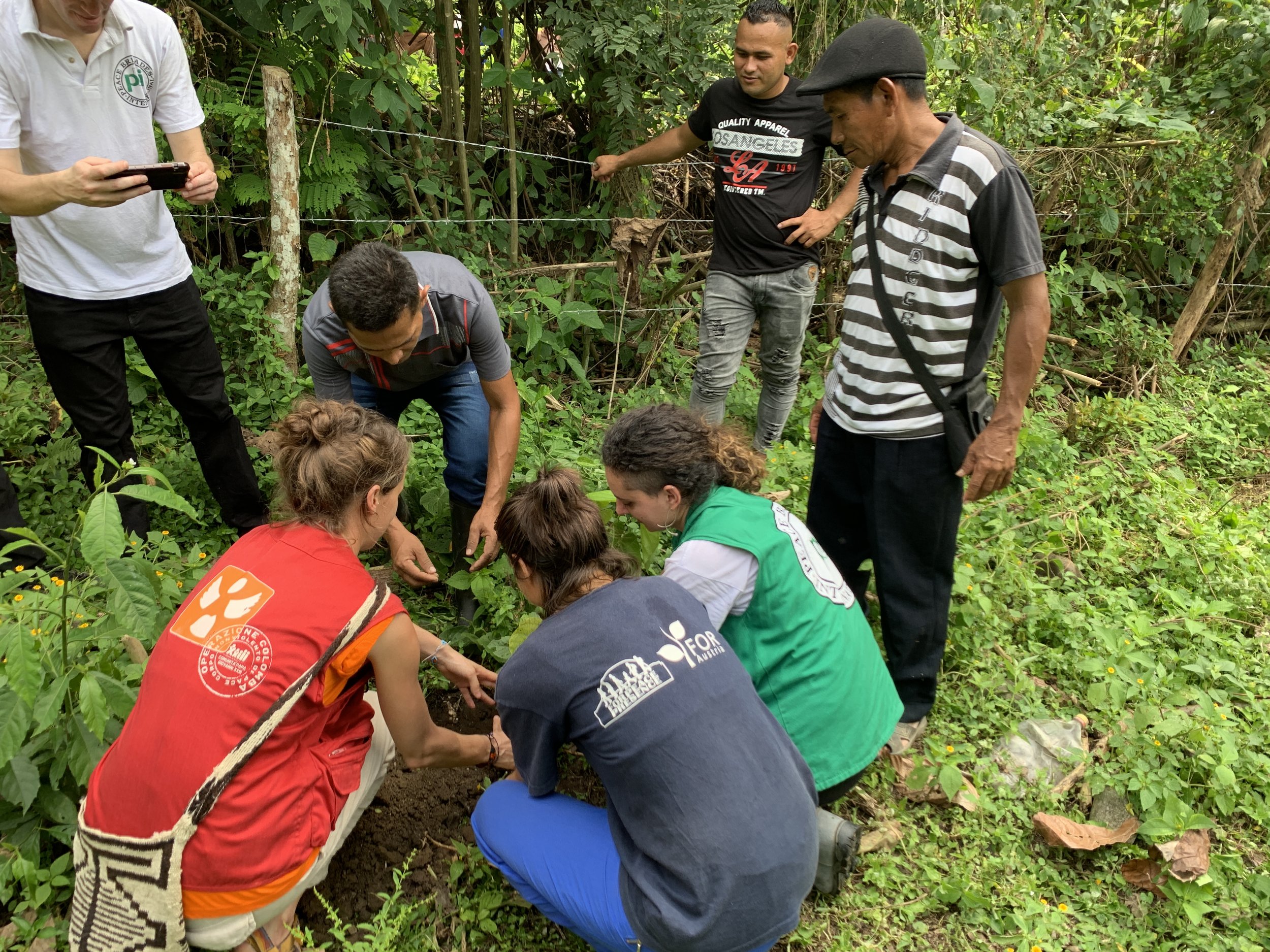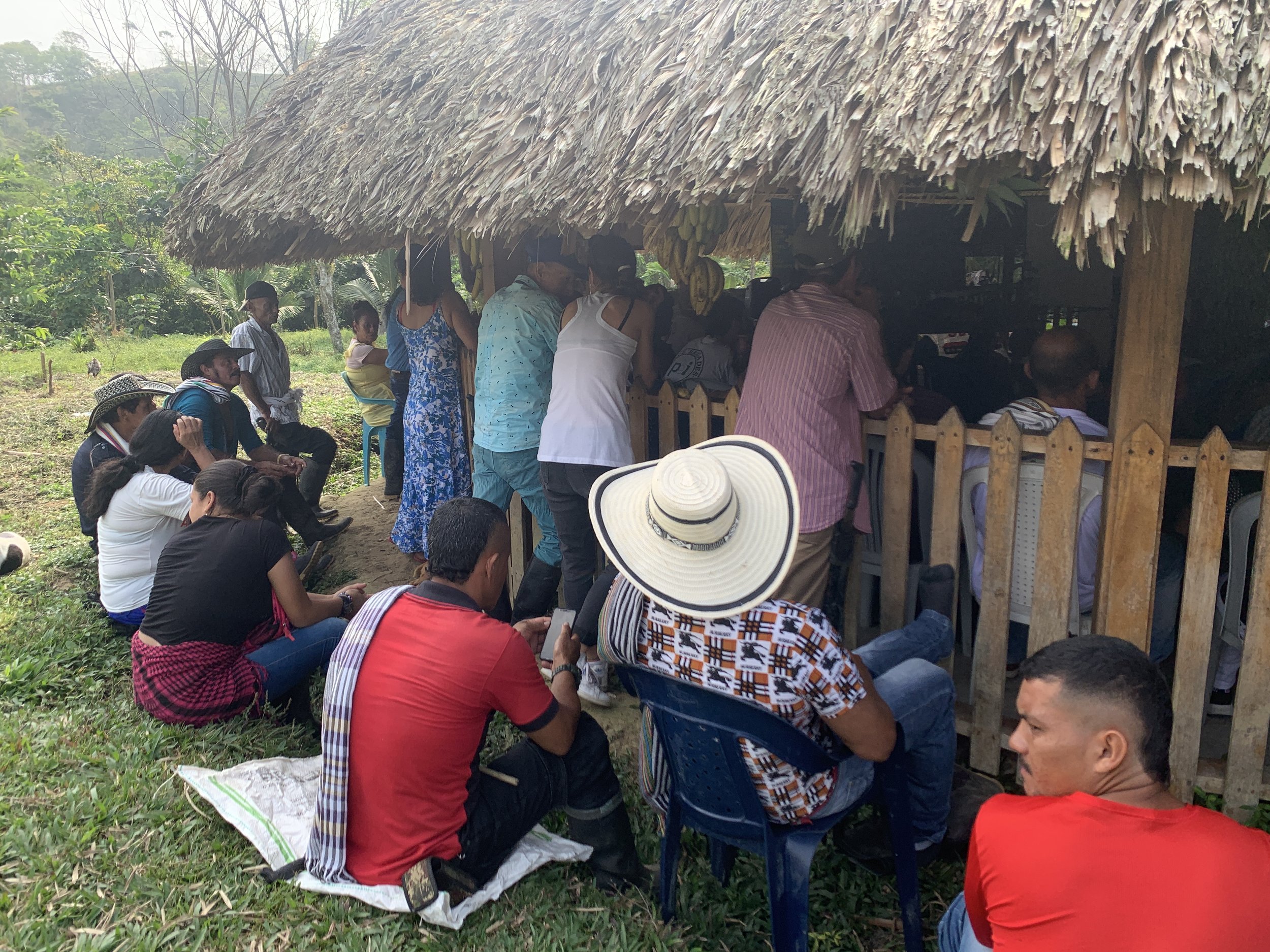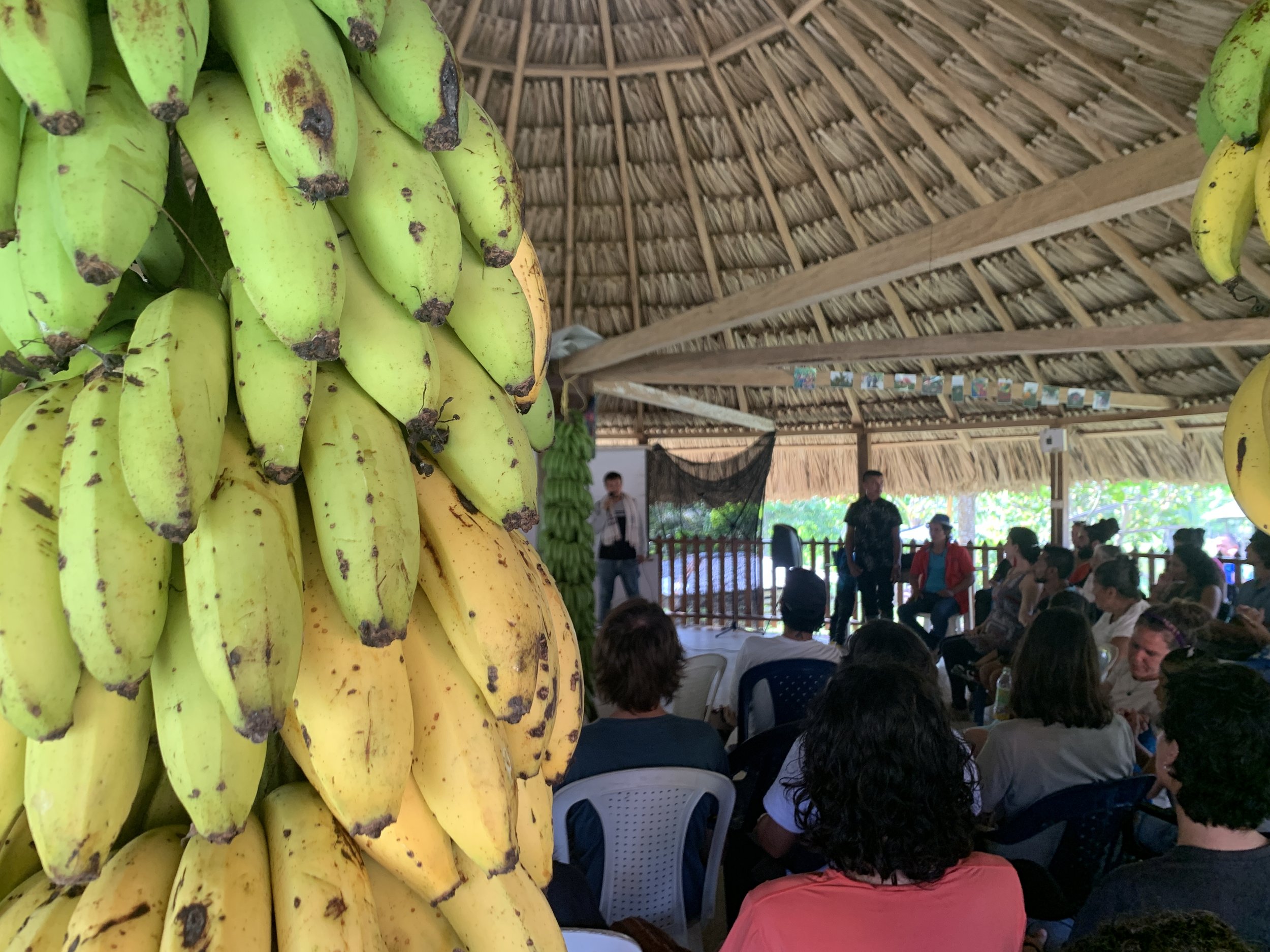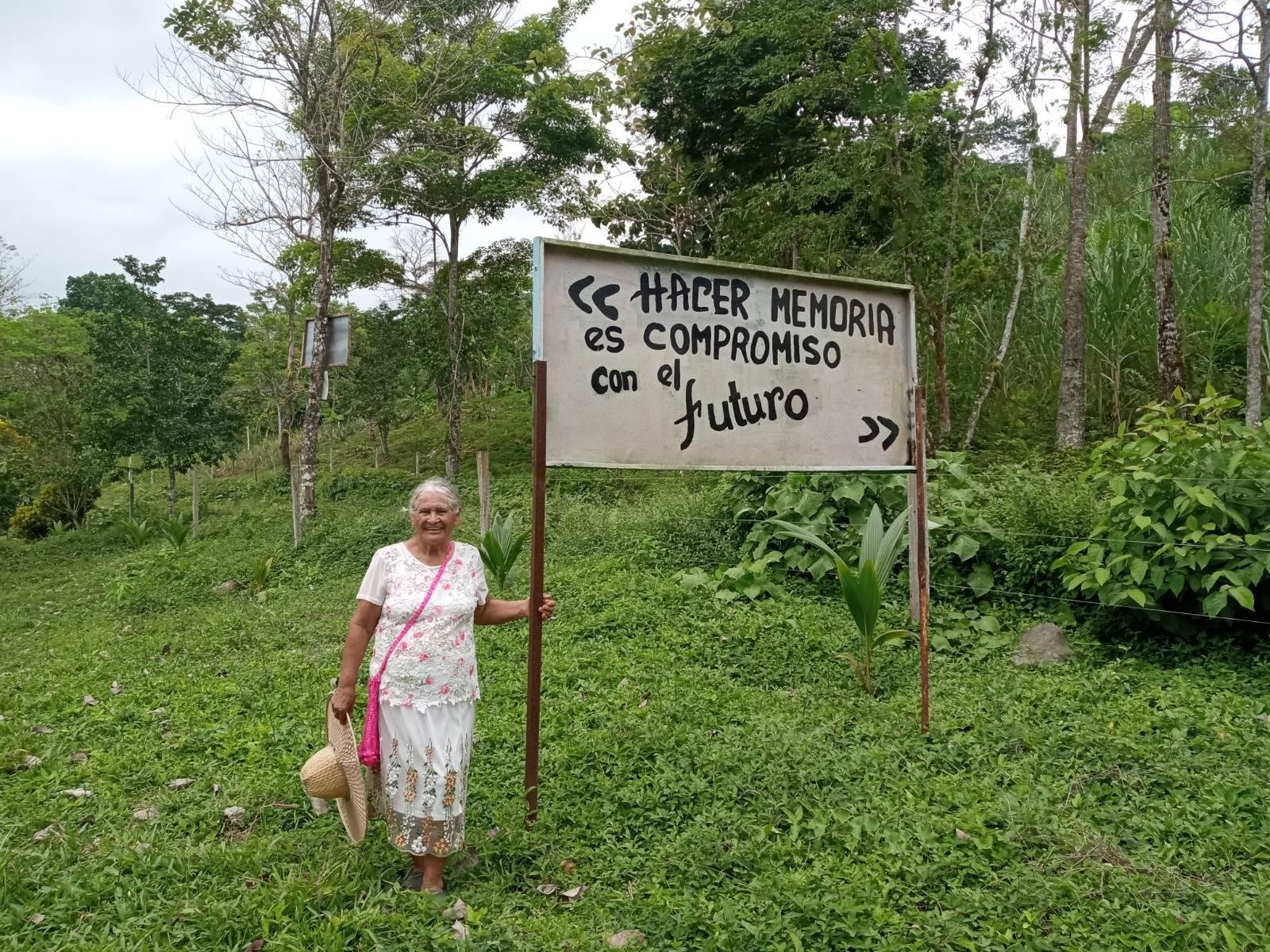IFOR-International Fellowship of Reconciliation, together with FOR Peace Presence and FOR Austria, is pleased to invite you to the
WEBINAR #3 of the ANNIVERSARY WEBINAR SERIES
“20 YEARS OF INTERNATIONAL ACCOMPANIMENT IN COLOMBIA”
May 7th 2022 at 5pm CEST on Zoom
International Fellowship of Reconciliation - IFOR, together with its branch IFOR Austria - VersöhnungsbundPeace Presence and its affiliate Peace Presence, is pleased to invite you to the webinar #3 "Peace efforts in Colombia: current challenges and opportunities" of the ANNIVERSARY WEBINAR SERIES.
The webinar is scheduled for May 7th 2022 at 5pm CEST.
This webinar #3 will focus on ongoing peace work highlighting challenges and opportunities and will present specific peace building experiences such as the peace community peace Comunidad De Paz San José De Apartadó and the humanitarian space Espacio Humanitario Puente Nayero and other local experiences with the participation of IFOR Swedish branch Kristna Fredsrörelsen, Swefor.
Our main speakers will be:
- Jose Roviro Lopez, Peace Community of San Jose de Apartado
- Nhora Isabel Castillo, Humanitarian Space Puente Nayero, Buenaventura
- Henry Alberto David, Life and Work Community La Balsita, Dabeiba
- Miriam Heins, SweFOR Choco Office Coordinator
- Irmgard Ehrenberger, FOR Austria
Moderators: Zaira Zafarana (IFOR), Manuel Müller (FOR PP), Michaela Soellinger (FOR Austria)
The webinar will provide more information on how to support such peace efforts and partner with local actors
Participating individuals and organizations will have the possibility to raise questions and engage in a direct exchange to explore opportunities to get involved and contribute to peace efforts in Colombia.
Register at bit.ly/20FORPP and participate!
The webinar will be in English and Spanish.
IFOR-International Fellowship of Reconciliation,
junto con FOR Peace Presence y FOR Austria, se alegra de invitarle al
WEBINAR #3 de la SERIE DE WEBINARIOS DEL ANIVERSARIO
"20 AÑOS DE ACOMPAÑAMIENTO INTERNACIONAL EN COLOMBIA"
7 de mayo de 2022 a las 5pm CEST en Zoom
International Fellowship of Reconciliation - IFOR, junto con su rama IFOR Austria - VersöhnungsbundPeace Presence y su afiliado FOR Peace Presence, se complace en invitarle al webinar #3 "Esfuerzos de paz en Colombia: retos y oportunidades actuales" de la SERIE DE WEBINARIOS ANIVERSARIOS.
El webinar está programado para el 7 de mayo de 2022 a las 5pm CEST.
Este webinar #3 se centrará en el trabajo de paz actual destacando los retos y oportunidades y presentará experiencias específicas de construcción de paz como la comunidad de paz Comunidad De Paz San José De Apartadó y el espacio humanitario Espacio Humanitario Puente Nayero y otras experiencias locales con la participación de la rama sueca de IFOR Kristna Fredsrörelsen, Swefor.
Nuestros principales ponentes serán:
- José Roviro López, Comunidad de Paz de San José de Apartadó
- Nhora Isabel Castillo, Espacio Humanitario Puente Nayero, Buenaventura
- Henry Alberto David, Comunidad de Vida y Trabajo La Balsita, Dabeiba
- Miriam Heins, Coordinadora de la Oficina de SweFOR, Chocó
- Irmgard Ehrenberger, FOR Austria
Moderadores: Zaira Zafarana (IFOR), Manuel Müller (FOR PP), Michaela Soellinger (FOR Austria)
El seminario web proporcionará más información sobre cómo apoyar estos esfuerzos de paz y asociarse con los actores locales.
Las personas y organizaciones participantes tendrán la posibilidad de plantear preguntas y participar en un intercambio directo para explorar las oportunidades de involucrarse y contribuir a los esfuerzos de paz en Colombia.
Inscríbete en bit.ly/20FORPP ¡y participa!
El webinario será en inglés y español.
Haga clic aquí para leer sobre el seminario web nº 1
Haga clic aquí para leer sobre el seminario web nº 2



